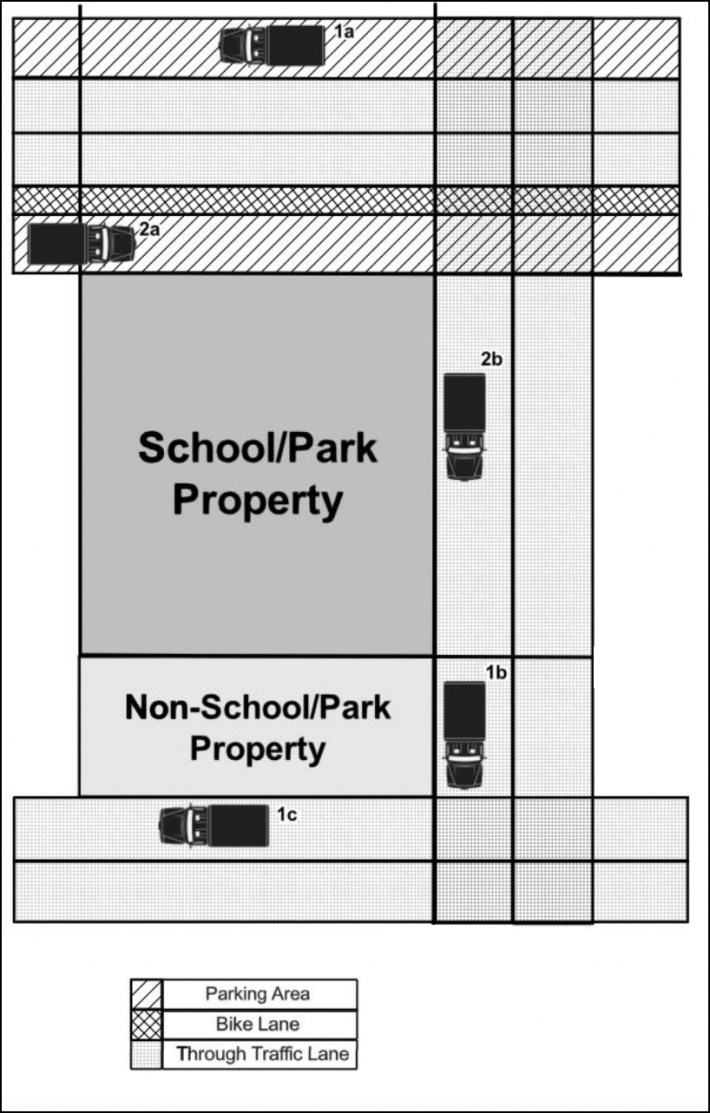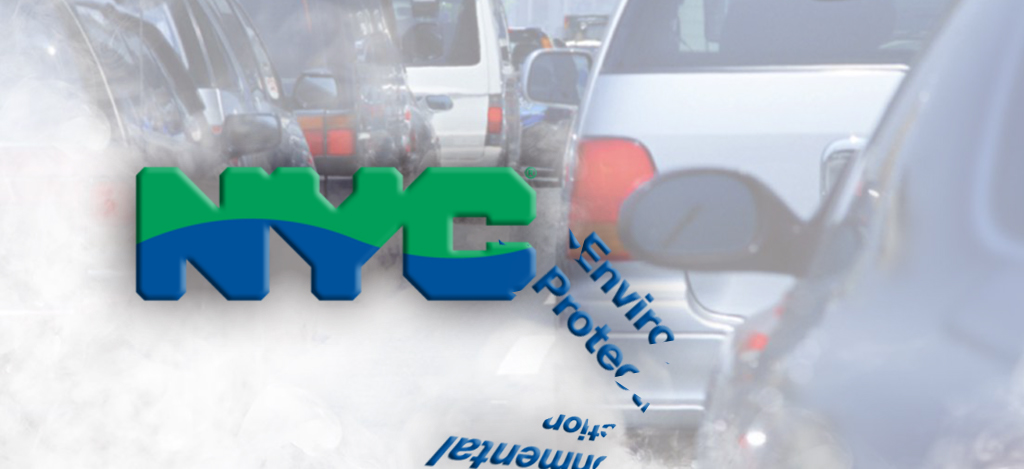Billy Never Idles — except if he moves across the street.
Drivers will be allowed to idle longer outside of schools — as long as they're on the opposite side of the street or a bit further down the block under a new rule proposed by city environmental officials.
The city's five-decade-old idling laws ban motorists from running their engines for more than three minutes while parked, but since 2009, motor vehicles on school blocks could only burn fuel for one minute before being subject to a fine.
But this week, the Department of Environmental Protection quietly released a new rule that would reduce the area considered "adjacent" to a school — redefining it as only on the same side of the street as, and in the footprint of, the school building itself. The change has angered the small army of citizen reporters that frequently flags offending vehicles as part of an enforcement program made famous by the Billy Never Idles campaign.
“That’s a joke,” said Patrick Schnell, a Brooklyn pediatrician who regularly reports idlers. “The whole idea is to protect children, and now DEP is really doing the opposite by making it harder to hold idlers accountable in school zones.”
The DEP's change, published in the City Record on Tuesday, came as the agency is under a requirement to now add streets around parks to the one-minute zone, thanks to a Council law.
That law expands the area where idlers can foul the air for only one minute, but still more than halves the amount of street space on school blocks where New Yorkers can report profligate petrol polluters, Schnell said.
School buses have also recently gotten an exemption that allows their operators to idle for a whopping 30 minutes around pick-up and drop-off times "to maintain passenger comfort," the agency newly buried in its Frequently Asked Questions section. If a citizen reporter tries to lodge a complaint against the pupil movers, the complainant has to not only wait for the full 30 minutes, but also include a screenshot of the school’s pickup or drop-off hours.
"They’re totally undermining the concept of a school zone," Schnell said.
The citizen reporting program enables New Yorkers to report commercial vehicles for idling — and then receive a portion of the resulting ticket as a bounty. With city enforcement officers more or less abandoning its ticketing efforts against gas guzzlers, citizen reporters now initiate the vast majority of the tens of thousands of idling tickets the city gives out each year.
The Council bill requiring DEP to expand the one-minute idling school zones to streets around parks took effect in August, but the city didn't publish its proposed rule change until this week.
The agency decided to also narrow its definition of which vehicles would be “adjacent” to either facility.
Currently, “adjacent” means on the same street as a school or a school property like playgrounds or athletic fields.

The new rule redefines a vehicle as adjacent if it's in a parking or moving lane that directly abuts a park or school property itself. That means vehicles idling on the opposite side of the street or down the block from a school would be outside the one-minute zone even though kids would be breathing that very same air.
DEP published a graphic showing two vehicles in the one-minute area (trucks 2a and 2b) and three of them outside, which could idle legally for three minutes, including across the street, on the same street but outside a non-school or park property, and a third around the corner.
The proposed rule change is not the first time the agency, which has "environmental protection" in its name, has added obstacles to reining in polluters motor vehicles.
DEP tweaked its regulations on Thanksgiving Day letting commercial vehicles to get away with idling if they don’t have plates. In 2022, the agency made a change that allowed more trucks to legally idle.
New York City has had an idling ban since the Lindsay administration for good reason. Motor vehicle traffic is one of the key culprits of PM2.5 pollution, the dangerous fine particulate matter that concerns air quality experts most, according to the city's Department of Health and Mental Hygiene.
After initial publication of this story, a DEP spokesman blamed the Council for leaving the defining of "adjacent" up to the agency — which then defined "adjacent" narrowly. The spokesperson said that lawmakers can always amend their legislation to broaden the rules.
"DEP worked with the city Law Department to develop a proposed rule that is fair to all New Yorkers, easy to understand, meets legal requirements, and can be applied clearly and consistently around both parks and schools citywide," spokesman Edward Timbers in a statement. "We would welcome working with the Council to adjust the law if this interpretation does not correspond to its legislative intent."
DEP will hold a virtual public hearing on the rule on March 7 at 11 a.m. You can join the Microsoft Teams hearing using the meeting ID: 244 505 317 117 and the passcode: CX82Vn.
Or call in (audio only) at (347) 921-5612 with the password 911593701#
There are many ways to comment on the proposal in writing:
- Via the city’s rules website
- Via email to nycrules@dep.nyc.gov
- Via regular mail to DEP Bureau of Legal Affairs, 59-17 Junction Blvd., 19th floor, Flushing, NY 11373
- Via fax to 718-595-6543.
Update (Feb. 8, 10:34 a.m.): This story has been updated to include comment from DEP.






